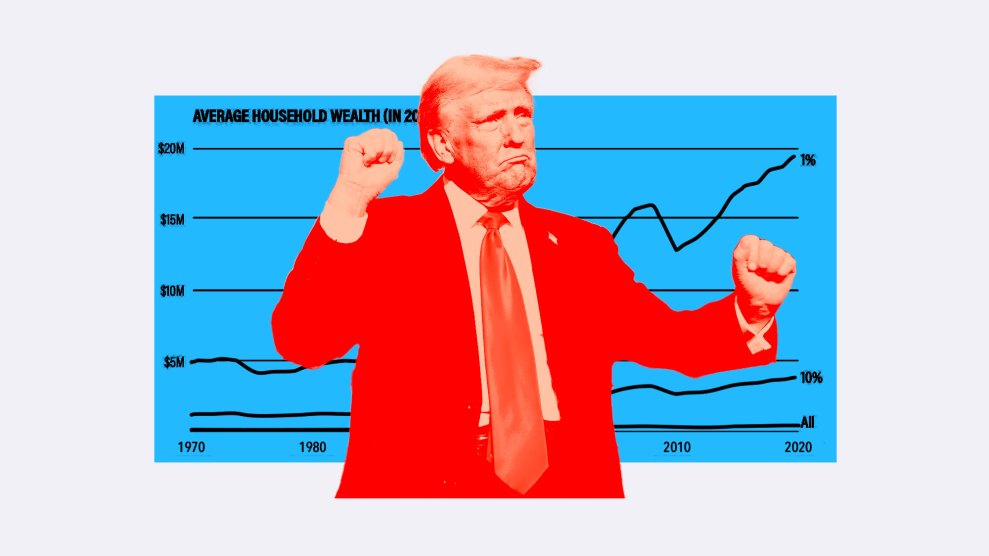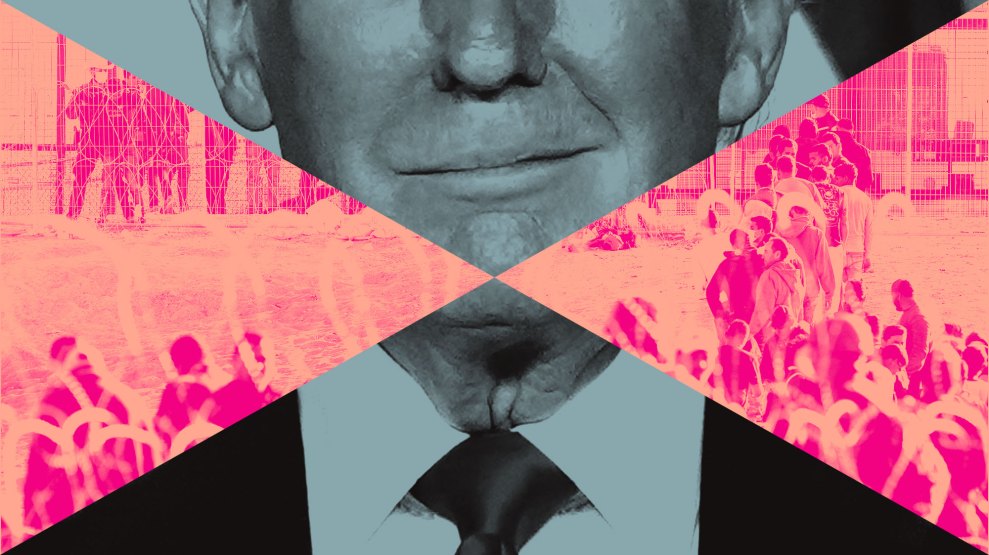This article was supported by the Economic Hardship Reporting Project.
For the last two years, photojournalist Rian Dundon has documented the escalating protests by Trump supporters and right-wing extremists like the Proud Boys in addition to their antifa counterparts on the left. Each of Dundon’s images examines what the media theorist Daniel Boorstin in the early 1960s called pseudo-events, or politics as spectacle. Boorstin’s pseudo-events were fabrications by news corporations and political leaders, but today’s pseudo events are concocted by extremist groups like the Proud Boys and iPhone-wielding bystanders rather than, say, CBS. The protests Dundon attended were all relatively small—the largest far-right demonstration in Portland in the Trump era comprised a mere 500 activists—but many in attendance were bloggers, YouTubers, and even amateur photographers busily documenting their own expressions of hate or outrage, which amplified the public’s perception of these gatherings.
Performance politics also factor heavily into these demonstrations, by which we mean groups ranging from the Proud Boys and the Patriot Prayer protesters to the black-clad antifa members and congregants of the left-leaning Satanic Temple. At a recent demonstration, Dundon watched Satanists goad Christian right groups with slogans like, “I fucked God and turned him gay.”
It would be a mistake to dismiss these protests as mere theatrics—the extreme emotions on display can be quite authentic. In that sense, these photos also serve as evidence of visceral politics fueled by a key emotion: hate. We ignore the rise of this sort of extreme political affect—the vicious slogans, the narrowed eyes, the contorted faces and the ecstatic embrace of masculine violence—at our own peril. As the scholar William Davies writes in his recent book on the subject, Nervous States: Democracy and the Decline of Reason, “We have to take people’s feelings seriously as political issues, and not simply dismiss them as irrational.” Democracies, he contends, are being rewritten by the “power of feelings in ways that cannot be ignored or reversed. This is our reality now.”
At a recent rally in Portland, where Dundon lives, he witnessed self-proclaimed patriots, most of whom were white men, marching through the streets. One of them casually told a black woman wearing fatigues and waving an upside-down American flag to protest the current administration that she should “go back to Africa.” The images that follow illustrate this new level of antipathy and bigotry, but they also point to these protests’ radical tourism, showmanship, and excessive political feeling, in what I can barely believe is still America.
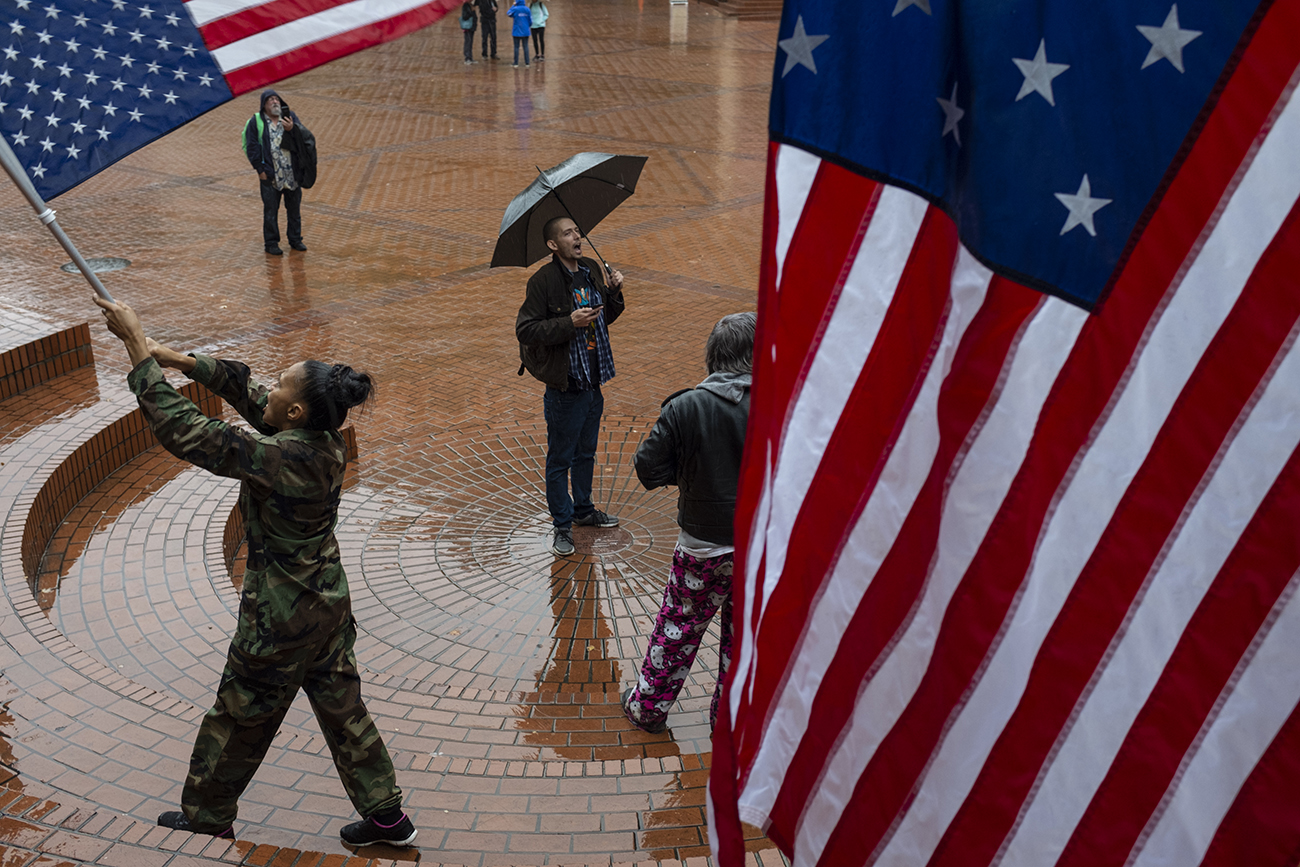
Marchers and counter protesters mix at a rain-soaked “prayer march” in downtown Portland, Ore., on September 15, 2019.
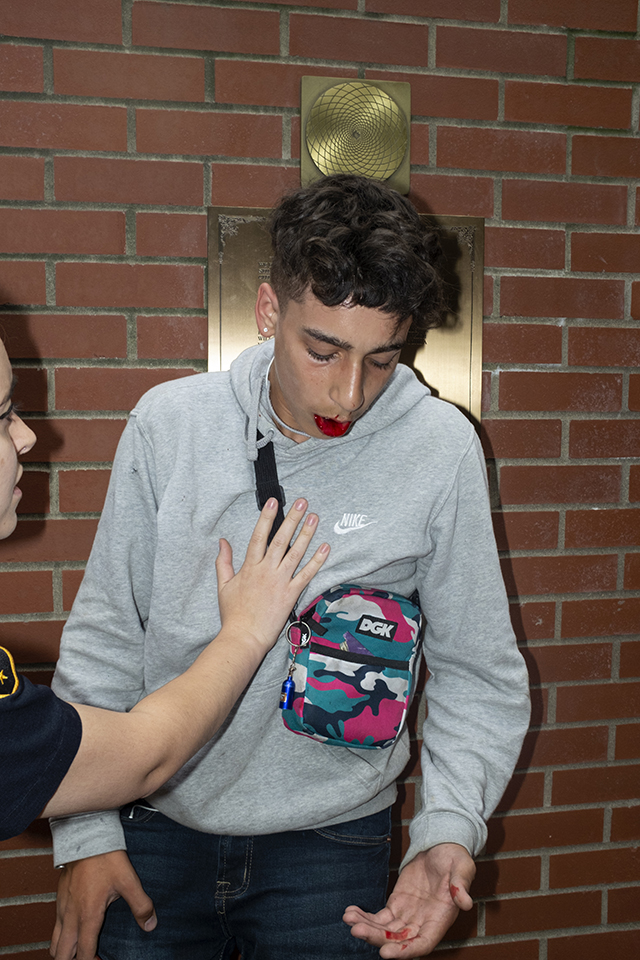
A young man reacts in surprise after being assaulted by unidentified assailants during political street skirmishes in Portland, Ore., on August 17, 2019.
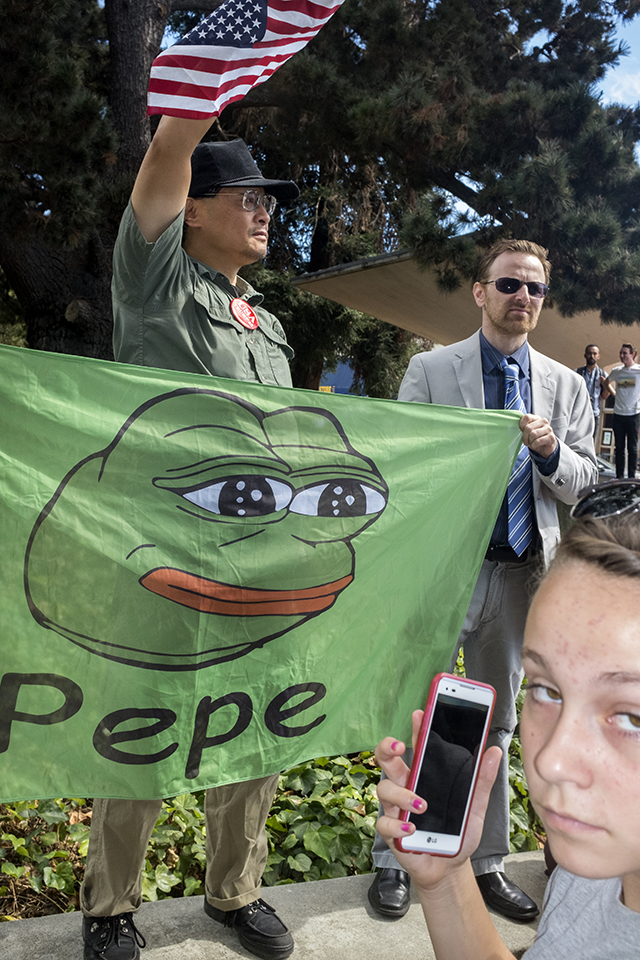
Supporters and opponents of Milo Yiannopoulos rally at the University of California campus in Berkeley for a “free speech” event where the conservative pundit was scheduled to speak on Sunday, September 24, 2017.
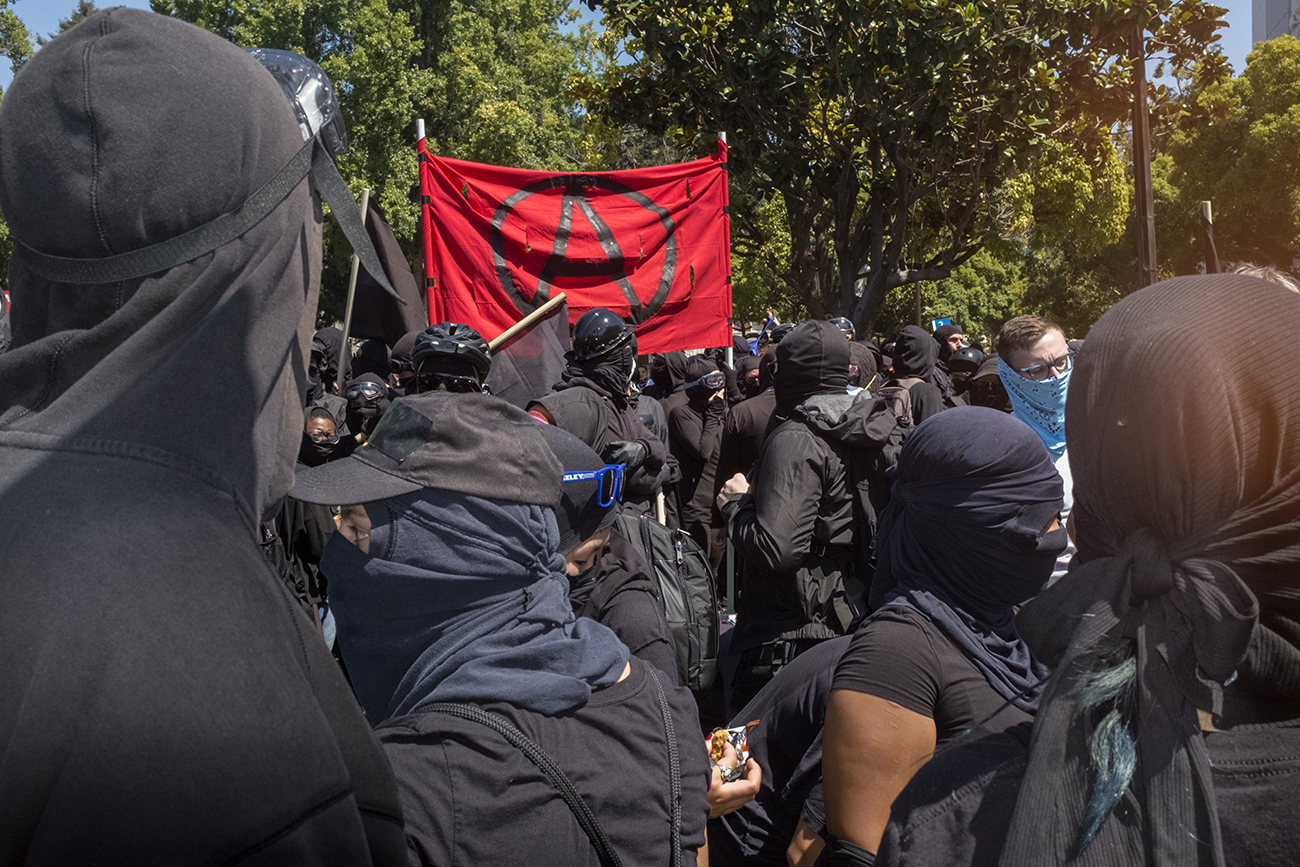
Militant anti-fascists congregate in Berkeley’s Martin Luther King Jr. Civic Center Park during a “Rally Against Hate” demonstration on August 27, 2017.
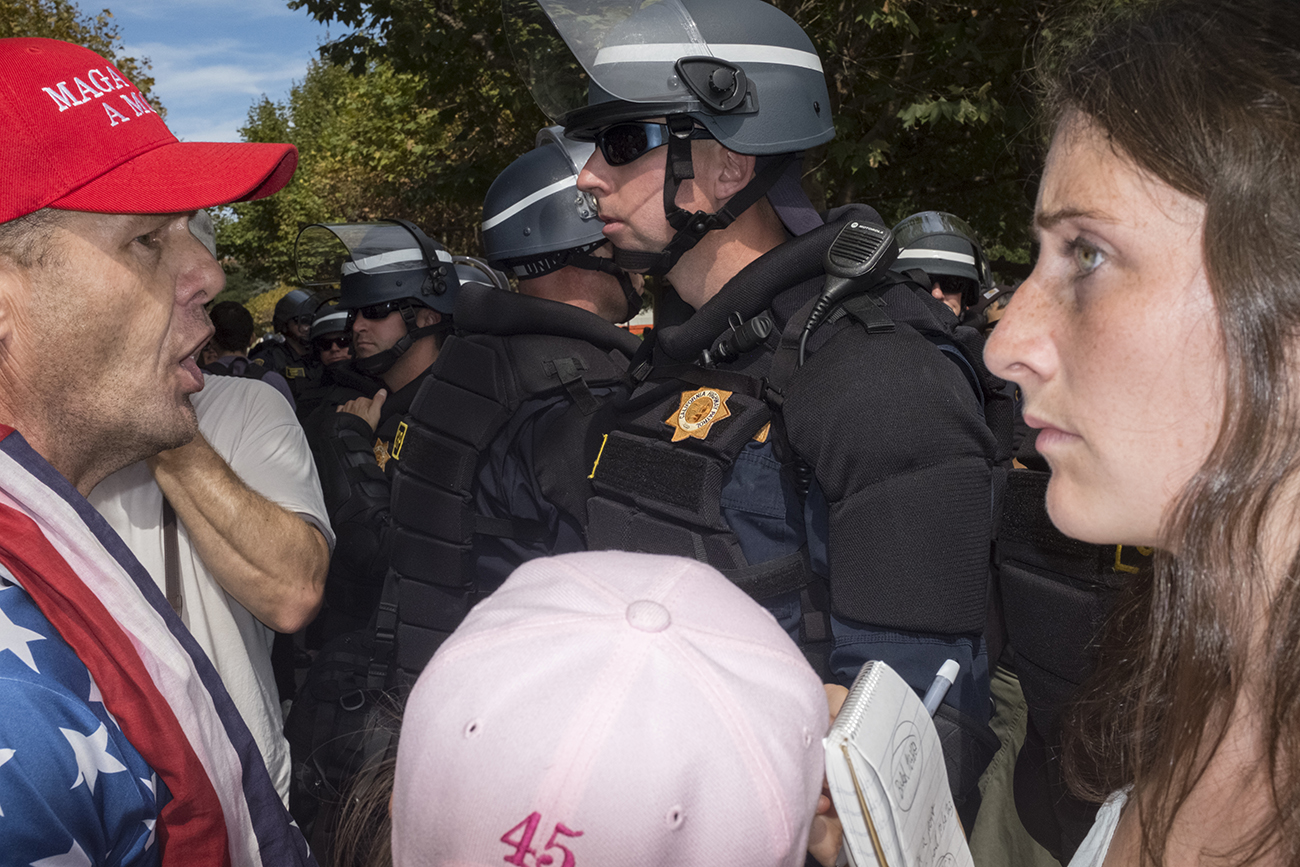
Supporters and opponents of Milo Yiannopoulos rally at the University of California campus in Berkeley for a “free speech” event where the conservative pundit was scheduled to speak on Sunday, September 24, 2017.
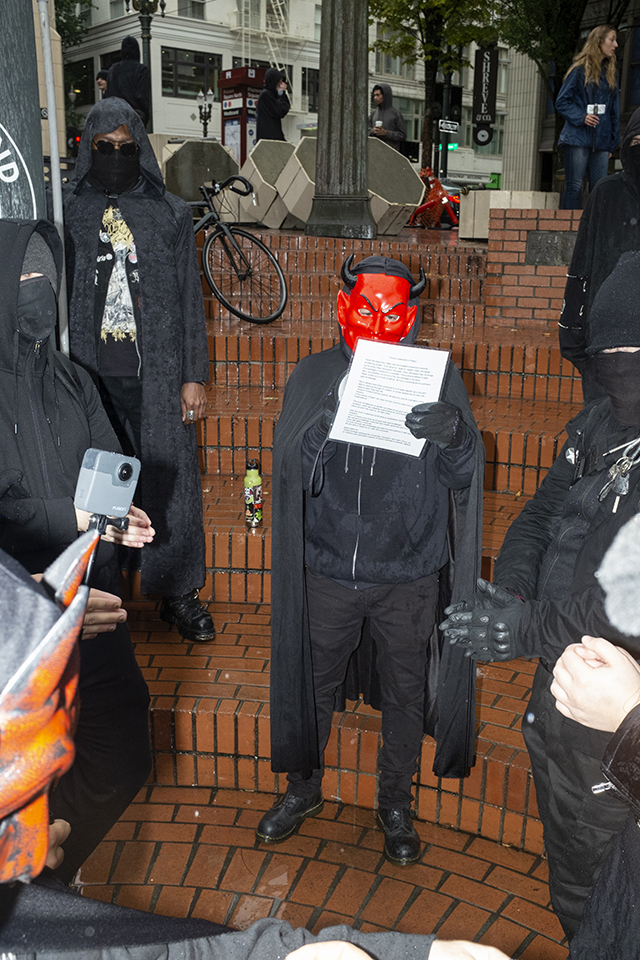
Anti-fascist Satanists hold a counter protest at a Patriot Prayer march in downtown Portland, Ore., on September 15, 2019.
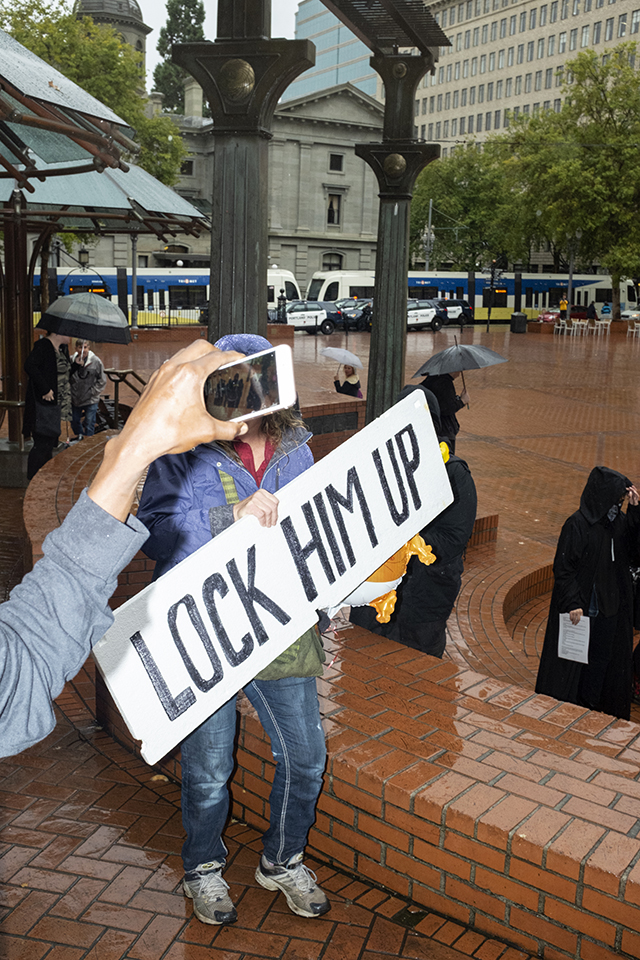
Counter protesters at a rally organized by the right wing Patriot Prayer group in downtown Portland, Ore., on September 15, 2019.
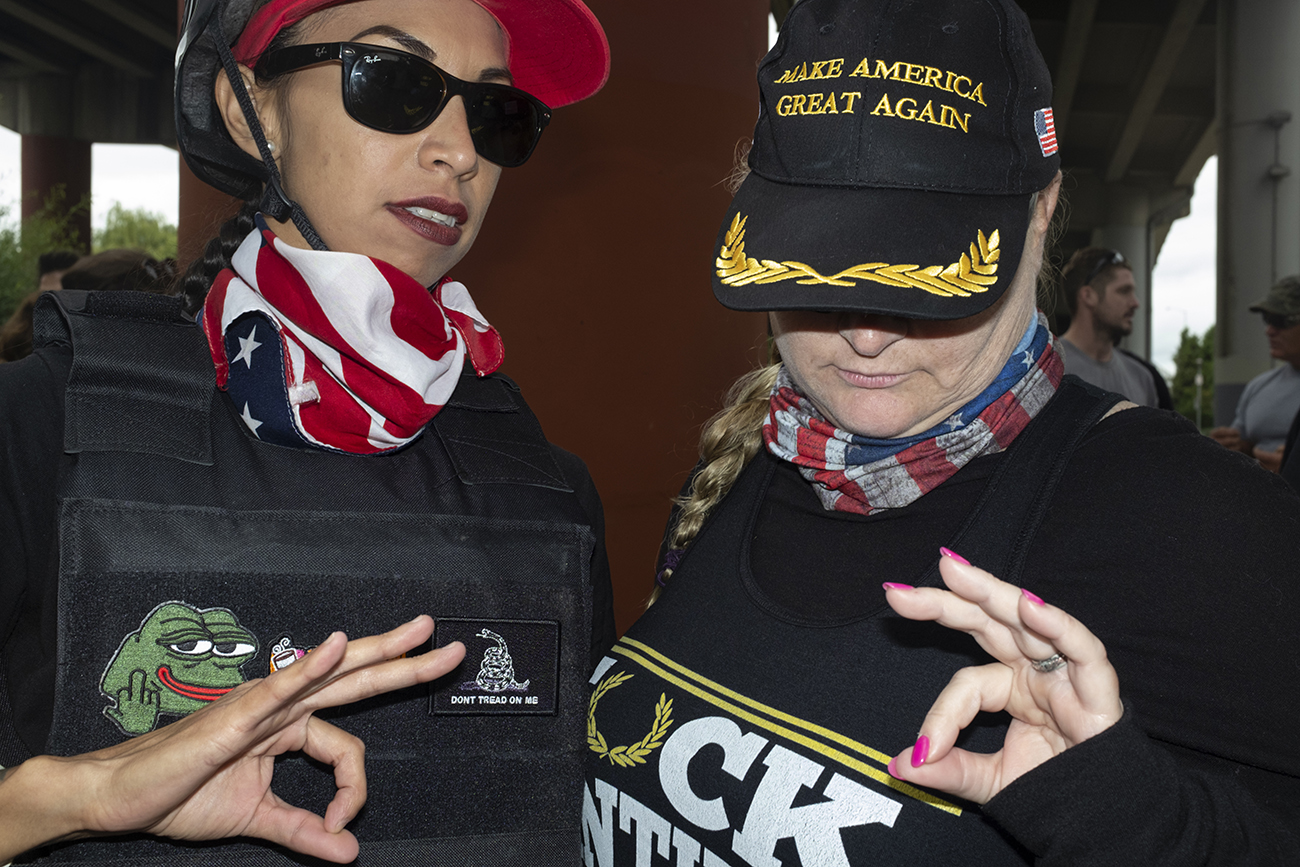
Attendees at a Proud Boys rally flash hand signs for the camera in Portland, Ore., on August 17, 2019.
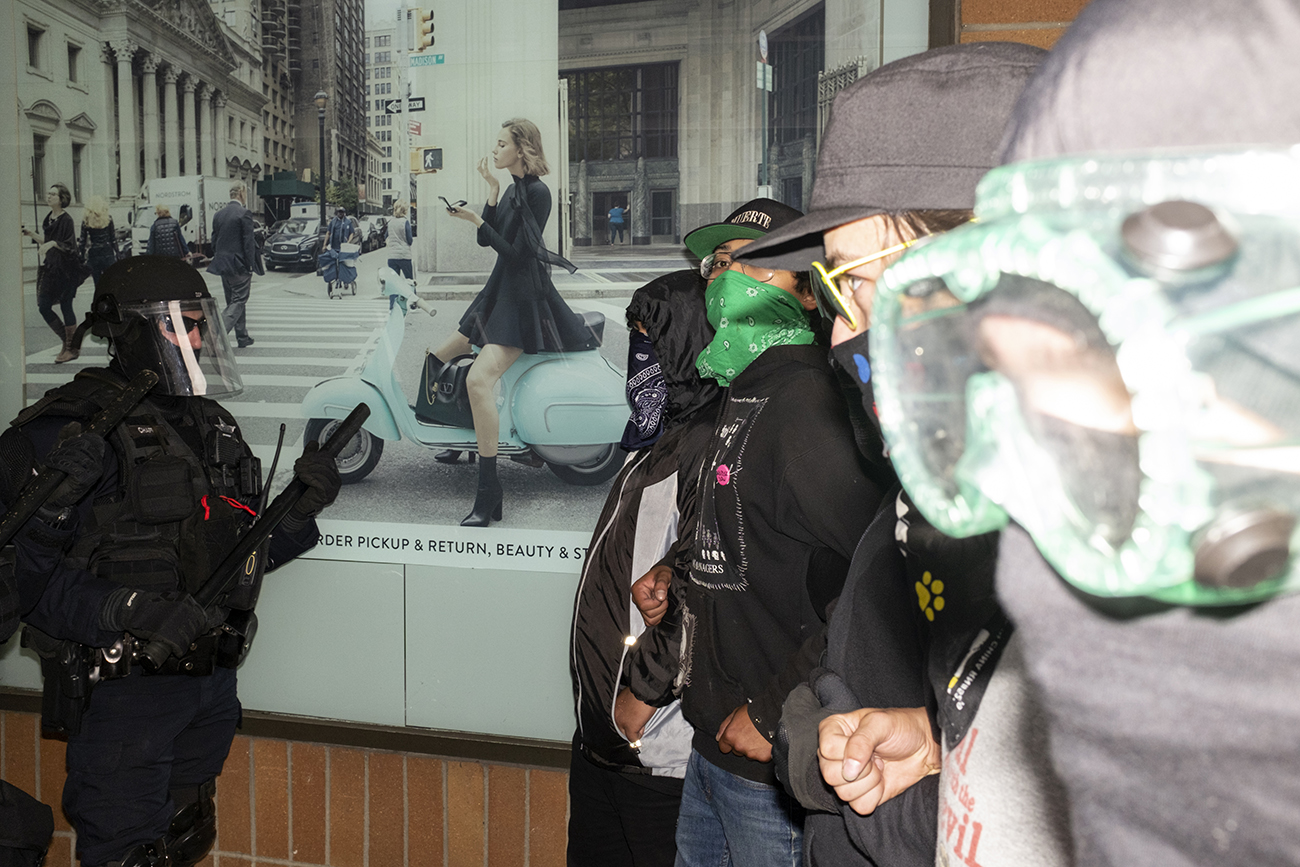
Anti-fascist activists confront police in the aftermath of a Proud Boys demonstration in Portland, Ore., on August 17, 2019.
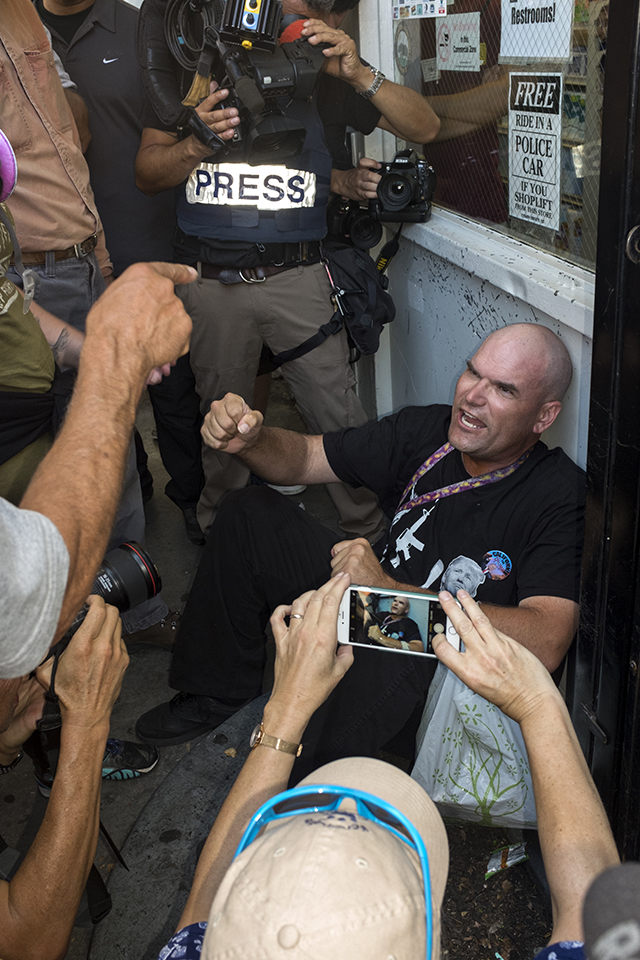
Leftwing activists and members of the media corner a Trump supporter during a “Rally Against Hate” demonstration in Berkeley, Calif., on August 27, 2017.
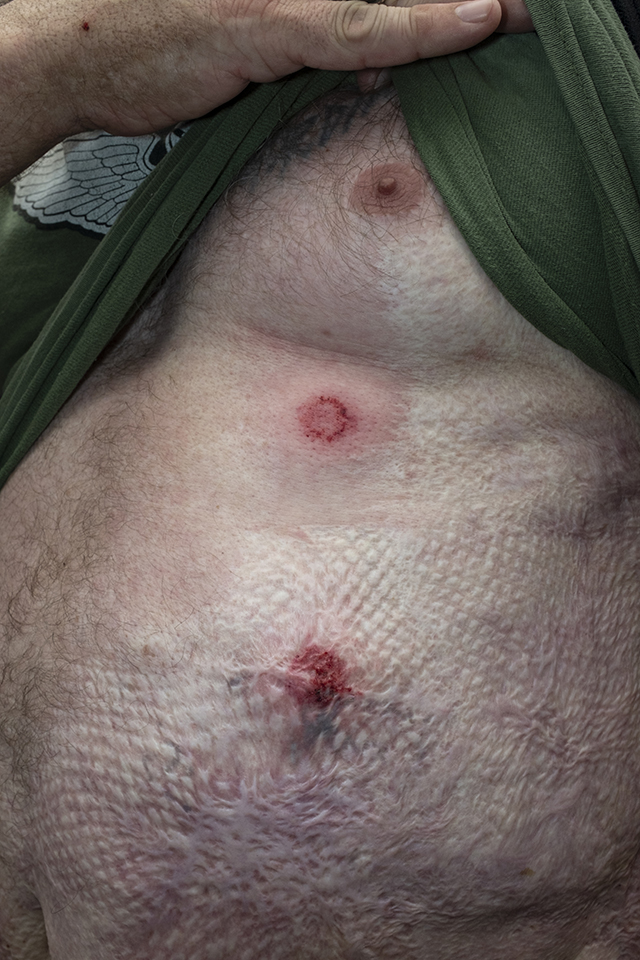
A man displays wounds inflicted by police bean bag rounds in the aftermath of a Proud Boys march in Portland, Ore., on August 17, 2019.
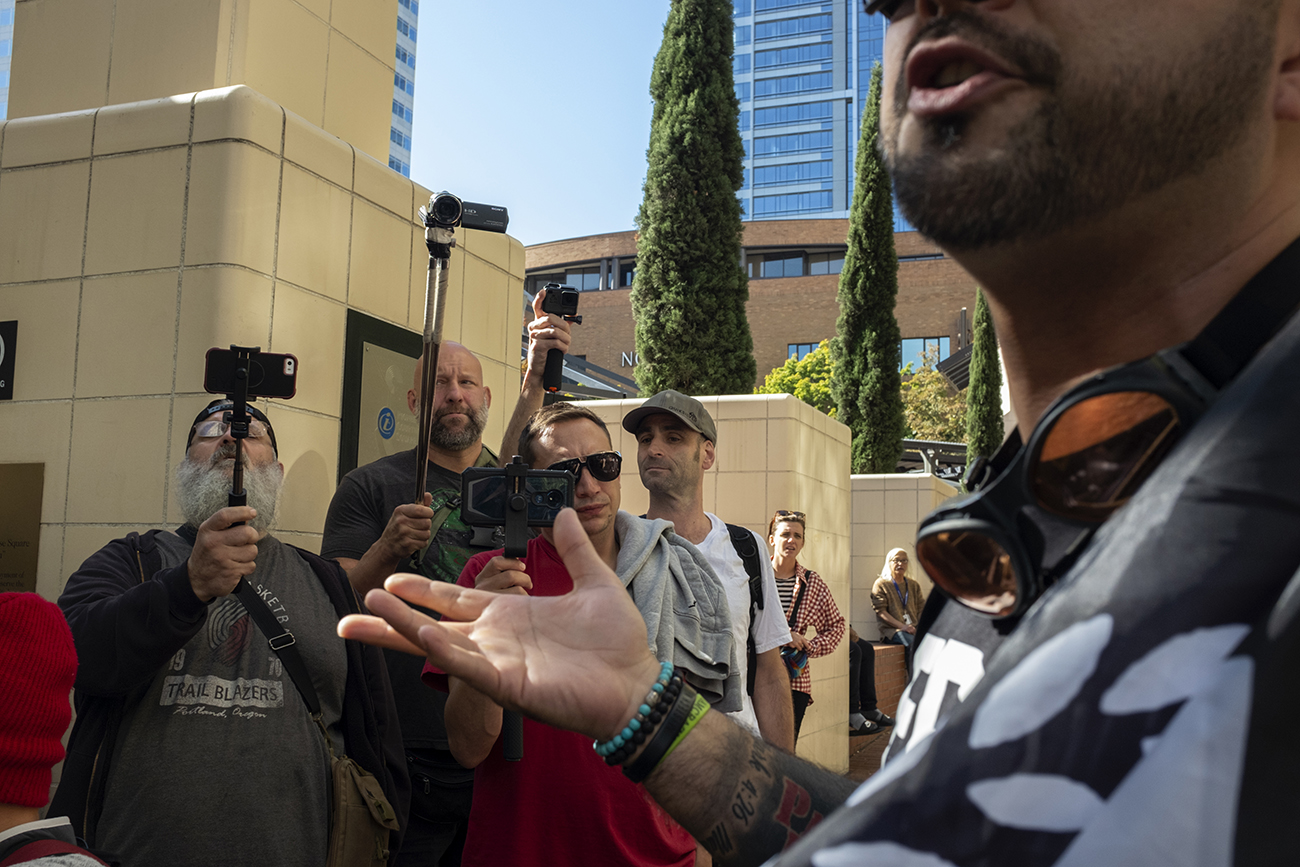
Cameramen film Patriot Prayer leader Joey Gibson during a rally in downtown Portland, Ore., on September 15, 2019.
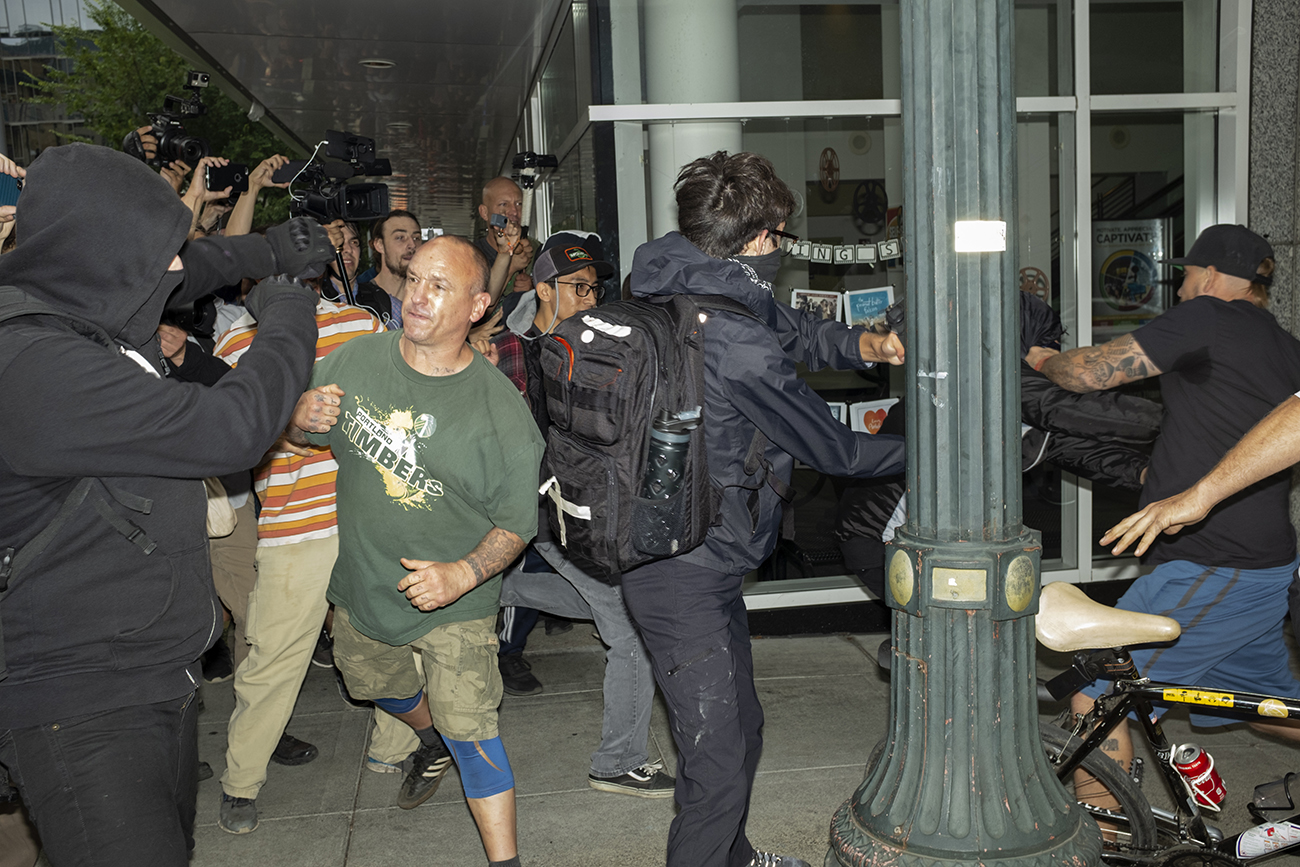
Street fighting broke out between anti-fascist activists and right wing attendees at a rally in Portland, Ore., on August 17, 2019.
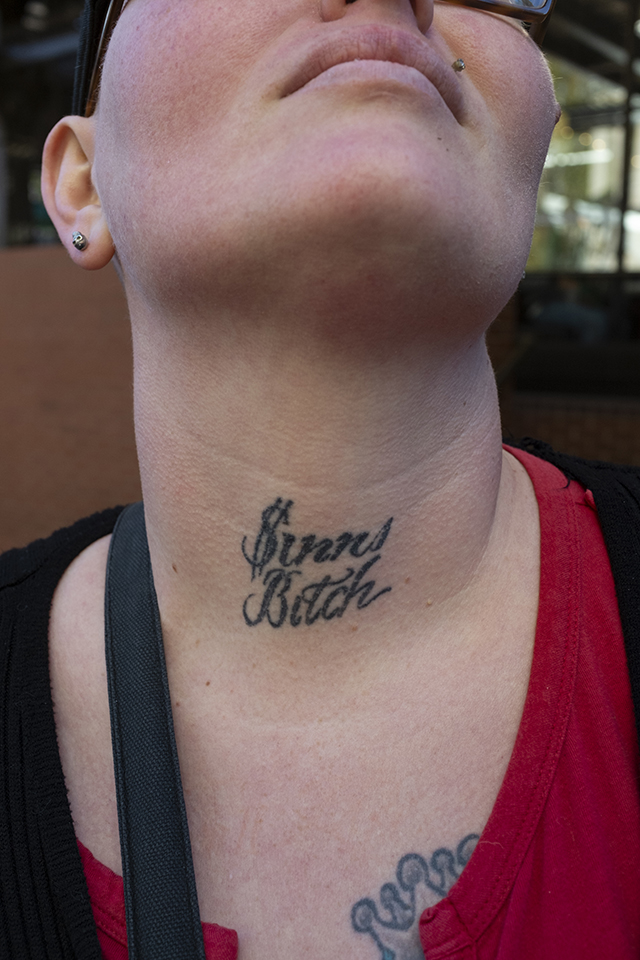
Patriot Prayer rally, Portland, Ore., October 6, 2019.
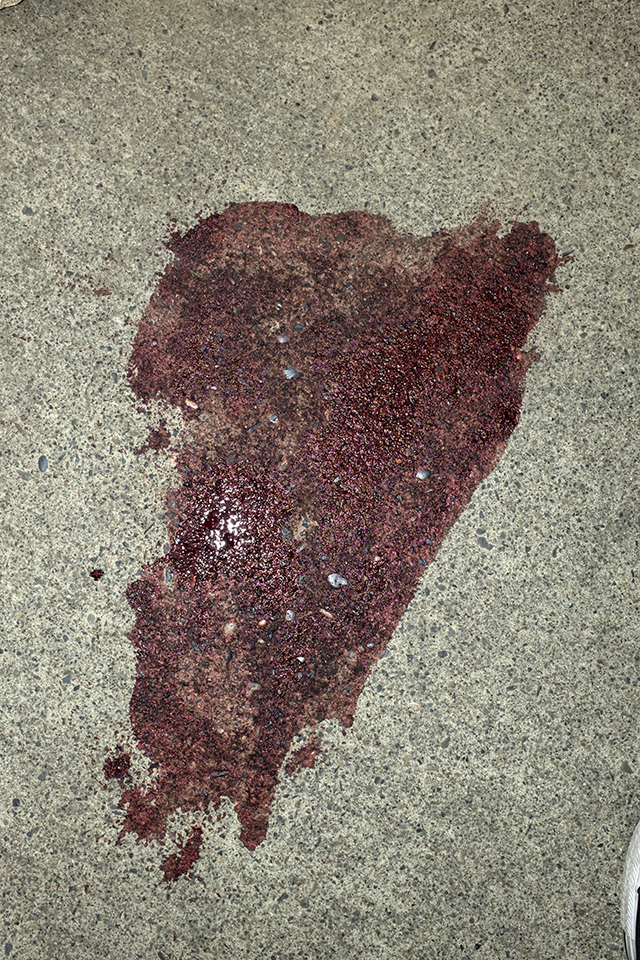
A blood stained sidewalk in downtown Portland, Ore., during a day of skirmishes between far-right supporters of the Proud Boys, Antifa, and police on August 17, 2019.
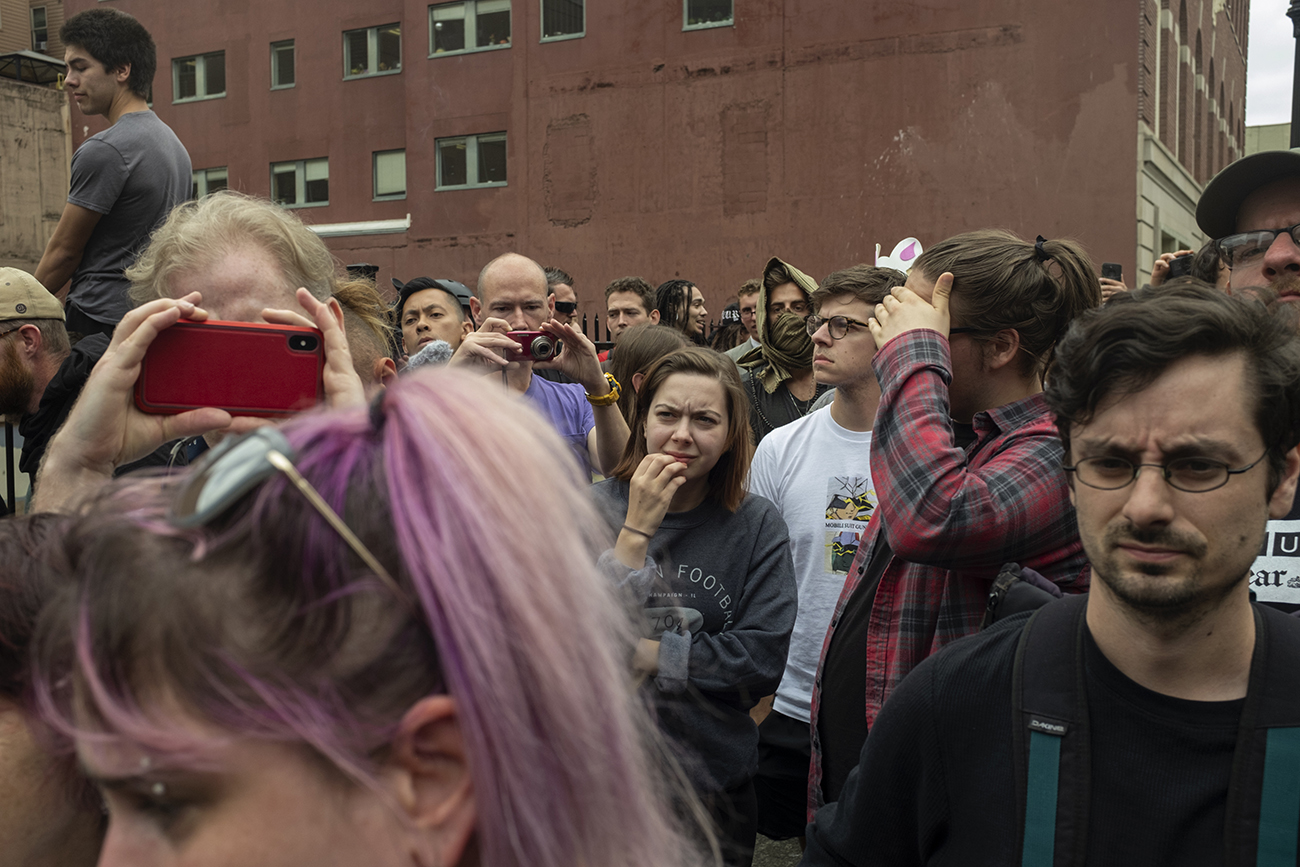
Onlookers watch as police arrest counter protesters on the day of a Proud Boys march in Portland, Ore., on August 17, 2019.
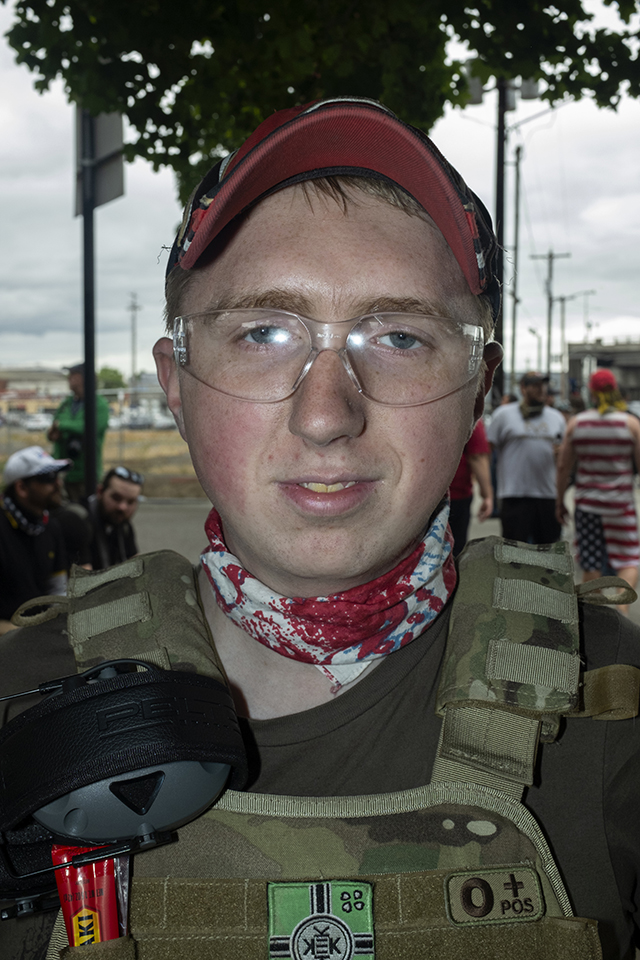
Proud Boys rally, Portland, Ore., August 17, 2019.







